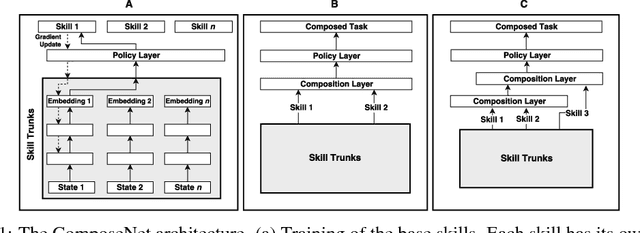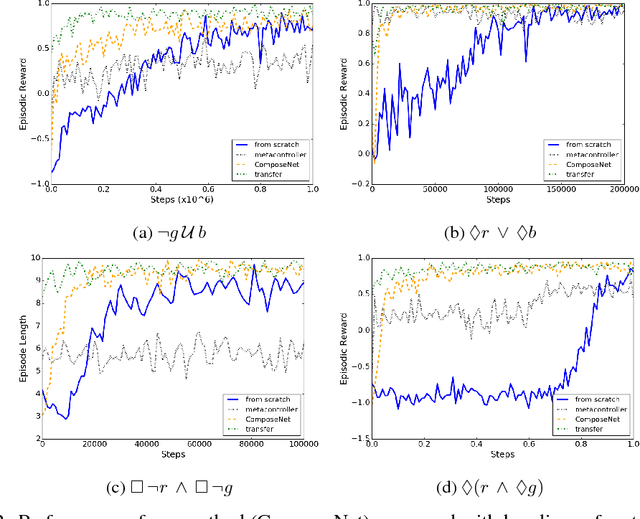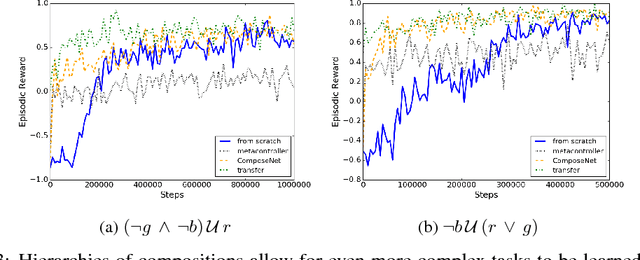Farhan Tejani
Learning to Compose Skills
Nov 30, 2017



Abstract:We present a differentiable framework capable of learning a wide variety of compositions of simple policies that we call skills. By recursively composing skills with themselves, we can create hierarchies that display complex behavior. Skill networks are trained to generate skill-state embeddings that are provided as inputs to a trainable composition function, which in turn outputs a policy for the overall task. Our experiments on an environment consisting of multiple collect and evade tasks show that this architecture is able to quickly build complex skills from simpler ones. Furthermore, the learned composition function displays some transfer to unseen combinations of skills, allowing for zero-shot generalizations.
State Space Decomposition and Subgoal Creation for Transfer in Deep Reinforcement Learning
May 24, 2017

Abstract:Typical reinforcement learning (RL) agents learn to complete tasks specified by reward functions tailored to their domain. As such, the policies they learn do not generalize even to similar domains. To address this issue, we develop a framework through which a deep RL agent learns to generalize policies from smaller, simpler domains to more complex ones using a recurrent attention mechanism. The task is presented to the agent as an image and an instruction specifying the goal. This meta-controller guides the agent towards its goal by designing a sequence of smaller subtasks on the part of the state space within the attention, effectively decomposing it. As a baseline, we consider a setup without attention as well. Our experiments show that the meta-controller learns to create subgoals within the attention.
 Add to Chrome
Add to Chrome Add to Firefox
Add to Firefox Add to Edge
Add to Edge